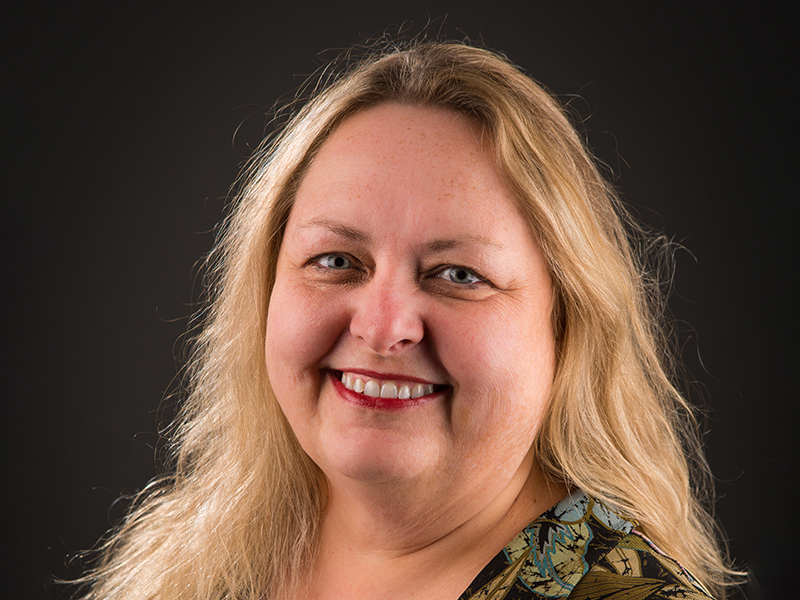
Interdisciplinary Team Works to Create Inaugural One Health Clinic
Imagine walking into a space where a local health provider, citizen and community elder are working together over a microscope and discussing a recent outbreak of a water-borne disease in their community.
As you get close enough to listen, you realize the citizen collected the water from his own well and was expressing concern that he had lost three goats and was worried about whether there was a risk to his children and other animals. This is what a Citizen Centre for One Health Research, Innovation and Surveillance (C2OHRIS) envisions for communities.
Principal Investigator and College of Nursing Professor Dr. Pammla Petrucka, along with co-investigators Dr. Phil Woods (College of Nursing), Drs. Tasha Epp and Emily Jenkins (Western College of Veterinary Medicine) and collaborator Dr. Joram Buza (Nelson Mandela African Institute of Science and Technology) have come together on the Join the C2OHRIS: Citizen Centres for One Health Research, Innovation and Surveillance project and were recently awarded one of four 2014 University of Saskatchewan (U of S) One Health Development Grants in the amount of $20,000.
One Health is “the collaborative efforts of multiple disciplines working together locally, nationally and globally to attain optimal health for people, animals and the environment” (AVMA 2008). The University of Saskatchewan has identified One Health as one of its six Signature Areas in which the university has the potential to be superior in research and scholarship. At the heart of the U of S One Health Initiative is the desire to develop interdisciplinary research teams and programs, such as this one established by Petrucka.
“The ‘Join the C2OHRIS’ project will bring this team together with traditional pastoralists, community leaders and academic partners to determine what the meanings and key elements of a Citizen Science based One Health Clinic would be,” said Dr. Petrucka. “Not only will this project bring together a unique mix of voices and ideas, but it will also initiate a small pilot C20HRIS site, with a focus on the community’s challenge regarding safe and sustainable potable water for their families and livestock.”
The project will explore the creation of an integrated One Health Clinic at an existing health clinic run jointly by the Ngorongoro Health Authority and the Tanzanian-based non-profit Green Hope Organization, supported by the University of Saskatchewan and the Nelson Mandela African Institute of Science and Technology. “We hope to change from a traditional healthcare centre to a One Health Clinic, where the community is involved in identifying One Health challenges, risks and opportunities,” said Pammla. “The centre, located in Alelayli, Tanzania - a community of less than 10,000 individuals, will be the inaugural Citizen Centre for One Health Research, Innovation and Surveillance. We want to provide a place where local and regional human health, animal health and environmental agencies and professionals can come together in an effort to shift from an inward focused human health system to an outward upstream focus on a One Health approach.”
Nursing student Allan Hundeby worked on this project as a Summer Research Assistant, alongside Petrucka and her team. “I scoured literature to see how the concepts of "One Health" and "Citizen Science" could be combined,” said Allan. “I read well over 500 article abstracts and faced the challenging task of "concept clarification" to summarize priority articles and inform the research team. This experience enhanced my ability to organize citations and resources, improved my efficiency in preparing research papers and overall, I feel the summer position will really add to my CV when I apply for a master’s program in a couple of years.”
What are Allan’s takeaways after working on the project? “Trans-disciplinary collaboration is required to overcome the "information silos" that prevail in academia,” said Hundeby. “The One Health Initiative is becoming the obvious approach to bring together health disciplines to face the interrelated health challenges between animals, humans and the environment. This teamwork perspective parallels the principles of Citizen Science - embracing the vast contextualized knowledge of local people and nonprofessionals who want to be involved in scientific research. Given that nurses are often central in connecting various health professions with members of the public, nursing can play a pivotal role in implementing a Citizen Science approach to the One Health Initiative.

